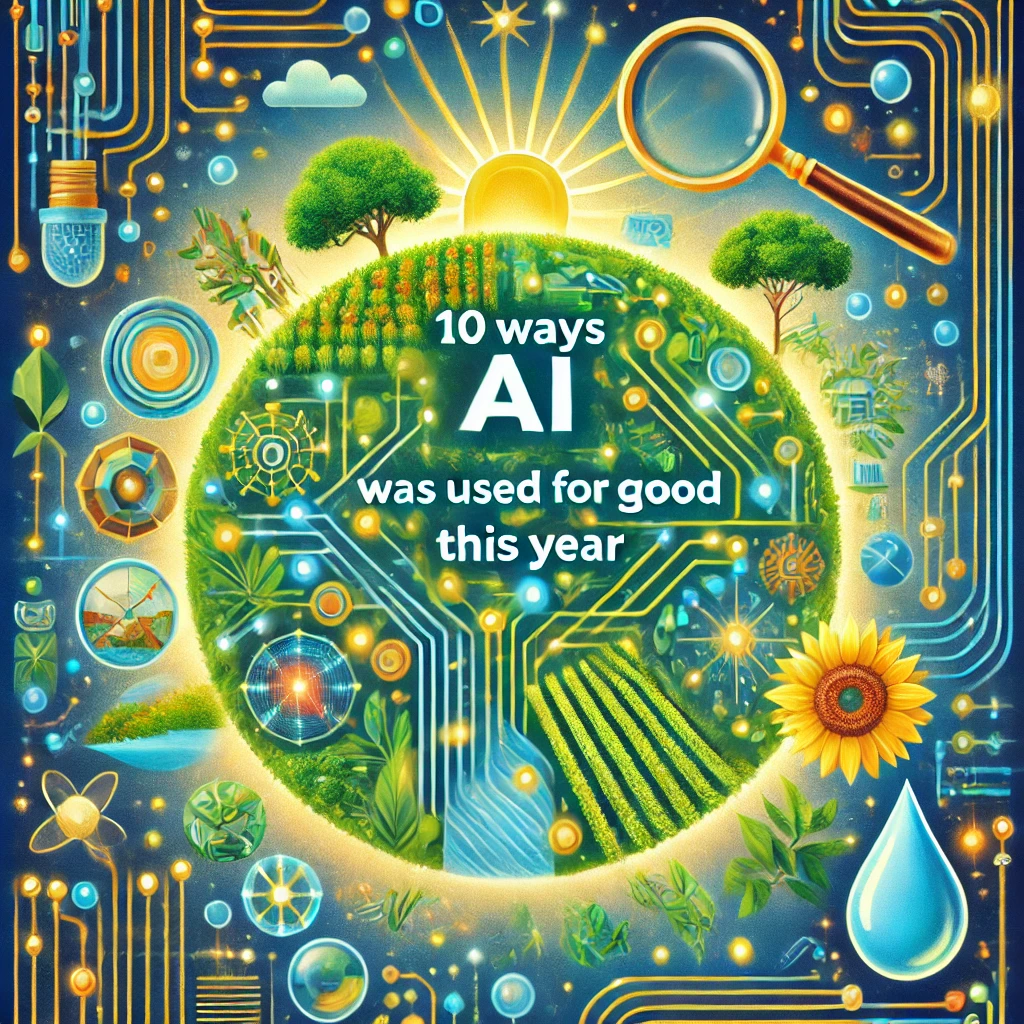
Artificial intelligence (AI) continues to transform our world in many ways, and this year was no exception. While discussions around AI often focus on its risks, many organizations and researchers have leveraged AI to create positive change. From addressing climate change to improving public health, AI has played a crucial role in solving some of the world’s biggest challenges. Here are ten impactful ways AI was used for good this year.
1. Tackling Climate Change
AI-powered climate models have improved the accuracy of weather predictions, helping scientists and policymakers anticipate and mitigate the effects of climate change. AI has also optimized renewable energy grids by predicting supply and demand, reducing energy waste.
2. Improving Access to Clean Water
AI-driven sensors and analytics have been used to monitor water quality and detect contamination in real time. These technologies have helped communities, especially in developing regions, gain better access to clean and safe drinking water.
3. Enhancing Agricultural Productivity
AI-powered farming solutions have helped farmers optimize crop yields by analyzing soil quality, predicting weather conditions, and detecting plant diseases early. These technologies have contributed to food security and sustainable farming practices worldwide.
4. Detecting and Preventing Deadly Diseases
AI-driven diagnostic tools have been instrumental in early disease detection, particularly in cancer and infectious diseases. AI-powered screening has enabled faster and more accurate diagnoses, leading to improved treatment outcomes and saving lives.
5. Protecting Biodiversity and Endangered Species
AI has been used in conservation efforts by analyzing satellite imagery and tracking wildlife movements to prevent poaching and habitat destruction. Machine learning models have also helped scientists identify and protect endangered species more effectively.
6. Reducing Food Waste
AI-powered supply chain management has minimized food waste by optimizing inventory, predicting demand, and redistributing surplus food to those in need. These solutions have helped businesses and charities combat global hunger.
7. Assisting in Disaster Response and Recovery
AI-powered drones and satellite imagery analysis have improved disaster response by quickly assessing damage after natural disasters such as hurricanes, earthquakes, and wildfires. AI has also assisted in predicting disaster-prone areas, allowing for better preparedness.
8. Advancing Education and Accessibility
AI-driven educational tools have provided personalized learning experiences, especially for students with disabilities. AI-powered speech recognition and translation technologies have helped bridge language barriers and make education more accessible worldwide.
9. Promoting Mental Health and Well-being
AI chatbots and virtual therapists have offered mental health support to individuals who lack access to traditional therapy. These AI-powered platforms have provided crisis intervention, emotional support, and mental health resources to millions globally.
10. Detecting and Preventing Violent Threats
AI-powered security systems have been deployed to detect weapons and suspicious activity in public spaces, reducing the risk of violent incidents. AI has also been used to monitor and prevent cyber threats, keeping digital environments safer for individuals and organizations.
Conclusion
Despite concerns about AI’s ethical implications, these positive applications demonstrate its vast potential for good. As technology continues to evolve, responsible AI development and implementation will be key to ensuring its benefits reach all of humanity. By leveraging AI for positive change, we can create a more sustainable, secure, and inclusive world.